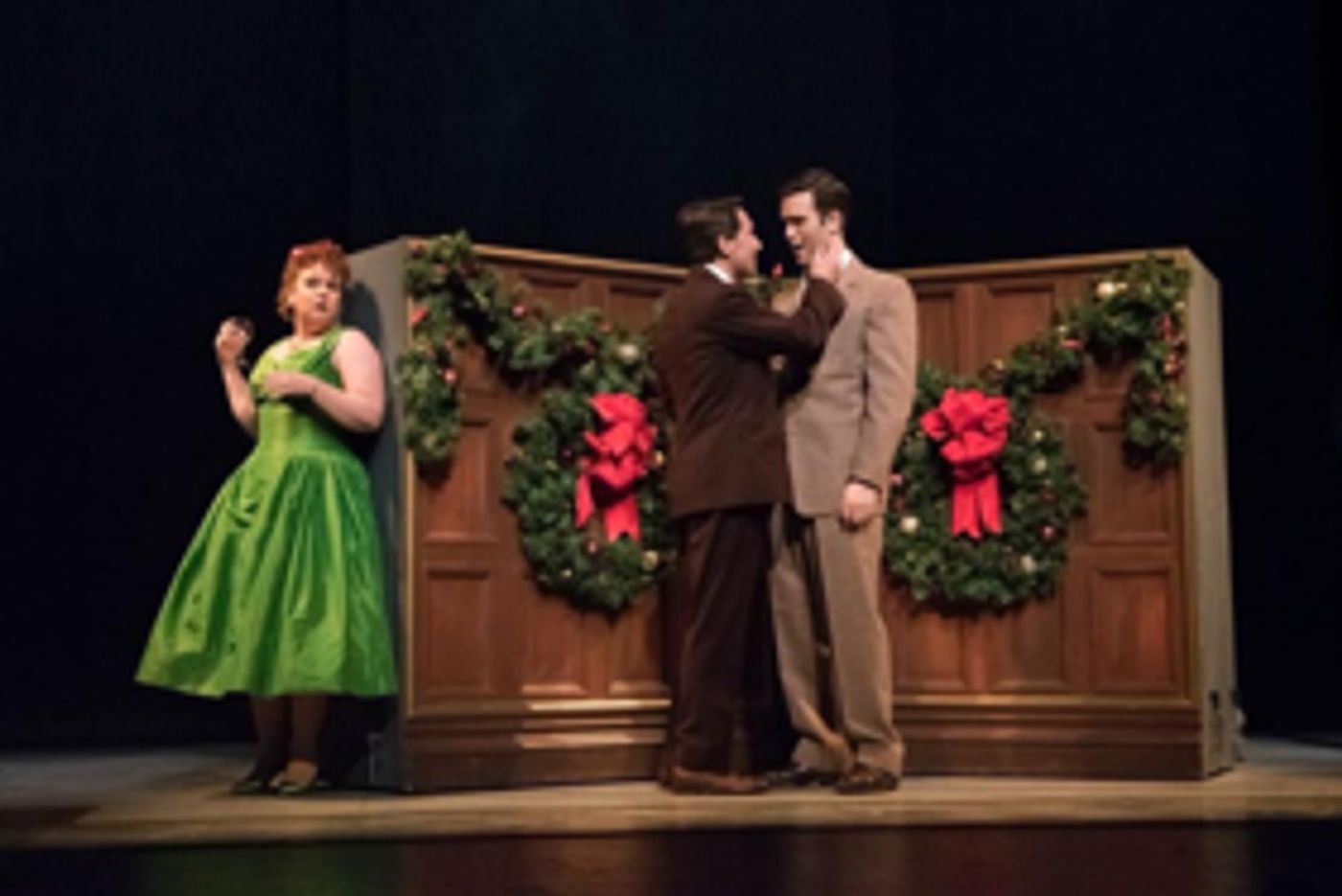Review: TRAVELERS in a Strange Land Called Washington, D.C., in NY Debut at Prototype 2018

Alexandra Shoeny at NY dress rehearsal. Photo: Jill Steinberg
Even if it were just for its history lesson about the "lavender scare" of the '50s-- the witch hunt and the mass firings of gay men and women from the federal government during the McCarthy era--FELLOW TRAVELERS by composer Gregory Spears and librettist Greg Pierce would be well worth seeing. But there's so much more to the opera, which had its local debut at the New York PROTOTYPE 2018 this weekend, directed by Kevin Newbury, at the Gerald Lynch Theatre--including some of the most gorgeous opera music in recent memory.
FELLOW TRAVELERS might seem an anomaly in the PROTOTYPE roster, which specializes in the edgy, the "out there," the music-from-the-day-after-tomorrow. And maybe it is an unusual choice, if you're seeking the minimalist, electronic sound ready to blast you out of your seat. But who says that's the only way to write today?
Working with librettist Pierce's concise and smart setting--adapted from Thomas Mallon's eponymous novel--Spears has created a splendid musical portrait of the '50s and the forbidden world of two men in love. Together, the creators show how (gasp!) human beings, warts and all, make decisions, get caught up in lies, and choose to free themselves from the shackles that society places on them.
The opera centers on a trio of characters, all portrayed by singers from the opera's 2016 world premiere at the Cincinnati Opera: Timothy Laughlin, a naïve who's come to Washington, DC, for a journalism internship (tenor Aaron Blake); Hawkins ("Hawk") Fuller, the worldly political operative who seduces and then falls for Tim (baritone Joseph Lattanzi); and Mary Johnson, Hawk's PA and friend (soprano Devon Guthrie), who's not only part of Tim and Hawk's story, but has one of her own as she deals with an unwanted pregnancy.
Tim is the center of the story in Pierce's vision and Blake does well by him. I've seen Blake before and Spears's brings out colors and warmth in his voice that I've never previously heard. He has some of the opera's best vocal music: His duet with Hawk when they first go to bed and his visit to confession were particularly memorable. As a character, he moved from innocence to integrity with ease.
Lattanzi's Hawk, snark and smugness covering any vulnerability he might have, was the character you loved to hate (hated to love?), filling the road to success he's chosen in Washington with swagger and conceit, but paying a price. He was most effective in his early scenes with Tim, including their rich duet redolent with yearning. When Lattanzi has his own beautiful aria in Act II, however, he seemed in some vocal distress, unable to project enough of the melody to make its point.
In some ways, Mary, while not the largest role, is the most finely drawn of the characters. Guthrie was remarkably good in her portrayal of one of the few sympathetic ears for the gay couple. Her strong, flexible voice did well by Spears's music.
The supporting cast did stellar work, often doubling and tripling their roles. The four baritones stood out: Vernon Hartman easily embodied the pompous Senator Potter and the more minor bartender, while Marcus DeLoach easily differentiated Mary's Estonian love, an interrogator and Joe McCarthy. Christian Pursell showed range as Potter's assistant, a bookseller and the priest in Tim's confessional and Paul Scholten was lively as Tommy McIntire in Potter's office. Soprano Alexandra Shoney was quite effective as the obnoxious whistleblower, Miss Lightfoot, while soprano Cecilia Violetta Lopez was fine in the thankless role of Lucy, who would eventually marry Hawk.
Working with the evocative, turn-on-a-dime scenic designs of Victoria "Vita" Tzykun, lit by Thomas C. Hase, director Kevin Newbury kept the action moving with cinematic speed. Sometimes it felt like he made choices that were too much in keeping with the "a culture operating under the surface and in counterpoint with the rigid formality of 1950's mores" (as the composer described the historical era in his notes), when more urgency might have been appropriate; for example, the bedroom scene in Tim's apartment, while musically vibrant, couldn't have been more modest in a Doris Day movie. The costumes by Paul Carey were period perfect for the most part, except for the off-kilter use of men's hats. (See any American noir film of the '50s on TCM to fix that.)
Spears's music was in good hands under conductor George Manahan and the excellent American Composers Orchestra. In his notes on the work, on the PROTOTYPE site, the composer talks about how he has attempted to blend American minimalism and the courtly, melismatic singing style of medieval troubadours. While I understand his approach, I kept feeling that bringing more dissonance into the music would better reflect the hateful environment in which the characters survive rather than thrive. This, however, is a minor quibble about a major score.
FELLOW TRAVELERS at PROTOTYPE, co-produced by Beth Morrison Productions and HERE, and co-presented with John Jay College of Criminal Justice and American Composers Orchestra, was a Cincinnati Opera Production. It was developed and co-commissioned by G. Sterling Zinsmeyer and Cincinnati Opera.
Reader Reviews
Videos

